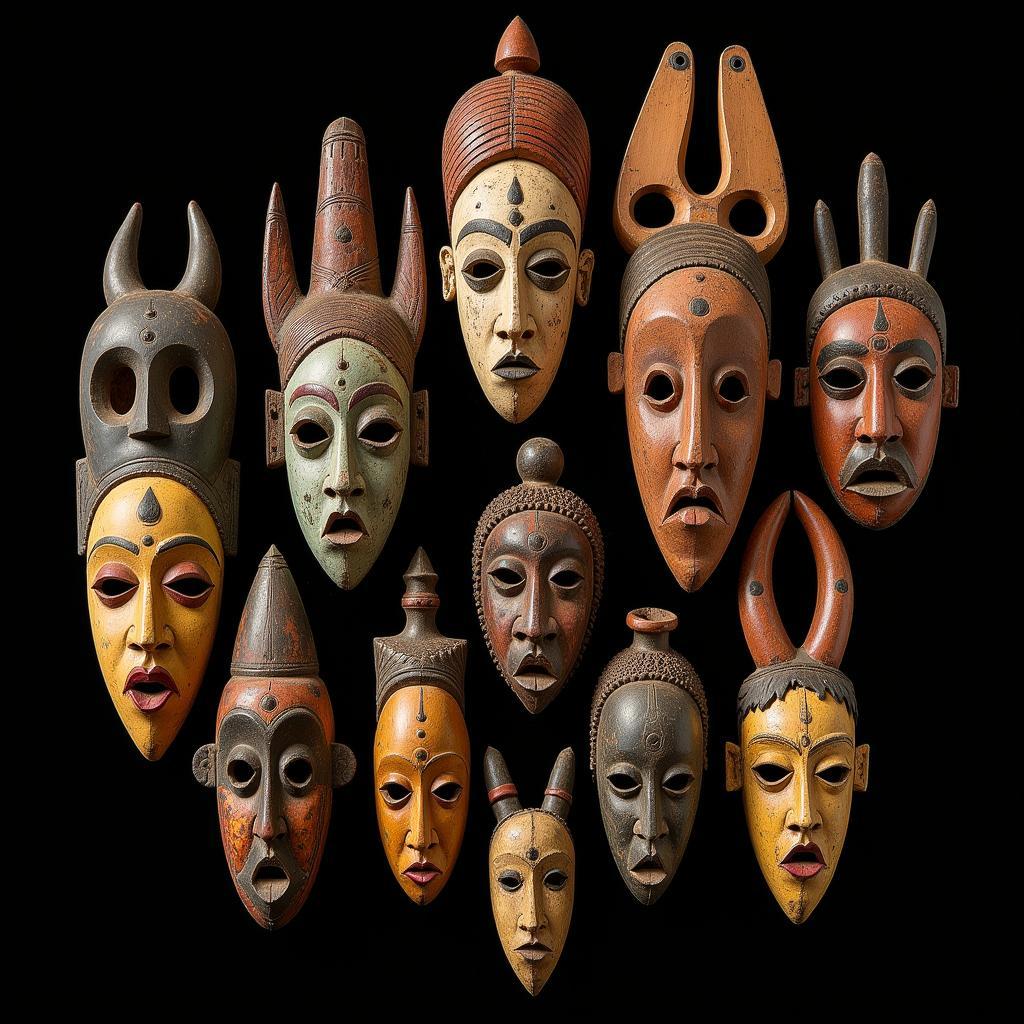African American Poems About Identity: Exploring the Black Experience
African American poetry is a rich and multifaceted tapestry woven with threads of identity, history, and resilience. The unique experiences of African Americans in the United States have been intricately explored through poems that grapple with themes of race, oppression, and the constant quest for self-definition. This article delves into the captivating world of African American poetry, focusing on poems that illuminate the complex and evolving identity of Black Americans.
The Power of Words: How Poems Shape Our Understanding of Identity
Poetry has always served as a potent tool for expressing personal truths, social commentary, and cultural narratives. In the hands of African American poets, verse becomes a powerful vehicle for exploring the nuanced and sometimes contradictory aspects of Black identity in a society often grappling with its own racial complexities.
Capturing the Essence of Blackness
African American poets have skillfully employed various literary techniques to convey the richness and depth of their experiences. From the lyrical rhythms of Langston Hughes’ “The Weary Blues” to the powerful imagery of Maya Angelou’s “Still I Rise,” these poems capture the essence of Blackness, embracing its joys, struggles, and triumphs.
“I, too, sing America.” – Langston Hughes, “I, Too, Sing America”
These words from Hughes’ seminal poem aptly capture the essence of African American poetry. They express a shared identity, a voice that resonates with a community yearning for recognition and inclusion.
Addressing Historical Trauma and Resilience
Many poems explore the enduring legacy of slavery and segregation, delving into the profound wounds inflicted on African Americans throughout history. However, these poems also celebrate resilience, highlighting the unwavering spirit of a people who have endured unimaginable hardships while preserving their cultural heritage.
“Out of the huts of history’s shame I rise.” – Maya Angelou, “Still I Rise”
Angelou’s poem resonates with the strength and determination of a people who refuse to be defined by their past, choosing instead to rise above adversity and claim their rightful place in the world.
Exploring Diverse Perspectives on Black Identity
The beauty of African American poetry lies in its diversity of voices and perspectives. Poets like Gwendolyn Brooks, Audre Lorde, and Nikki Giovanni have each contributed unique and insightful narratives, enriching the tapestry of Black identity.
Navigating Gender and Sexuality
African American poets have also challenged traditional norms, exploring the intersection of race, gender, and sexuality. Audre Lorde, in poems like “The Uses of the Erotic,” boldly embraces the erotic as a source of power and self-discovery, challenging the dominant narratives that often silence the experiences of Black women.
“Your silence will not protect you.” – Audre Lorde, “Your Silence Will Not Protect You”
Lorde’s words serve as a potent reminder that silencing ourselves will not shield us from injustice. Instead, we must find our voices and use them to advocate for change.
Embracing the Nuances of Black Identity
Contemporary African American poets like Warsan Shire, Danez Smith, and Solange Knowles continue to push the boundaries of the genre, exploring the complexities of Black identity in the 21st century. They address issues of cultural appropriation, police brutality, and the ongoing struggle for equality, demonstrating the ever-evolving nature of the Black experience.
“I am a black girl / I am a black woman / I am a black mother / I am a black queen / I am a black goddess / I am a black angel / I am a black star.” – Warsan Shire, “The Black Girl Poem”
These lines from Shire’s poem powerfully affirm the multifaceted and divine nature of Black womanhood. They serve as a testament to the beauty, strength, and resilience of Black women across generations.
Why Should You Read African American Poetry?
African American poetry offers a unique and insightful window into the Black experience, providing a deeper understanding of history, culture, and identity. It allows us to connect with the emotions, struggles, and triumphs of a community that has shaped the very fabric of American society. Reading these poems allows us to:
- Gain a deeper understanding of the complex and evolving nature of Black identity.
- Recognize the enduring legacy of slavery and segregation and the ongoing fight for equality.
- Appreciate the resilience and strength of a people who have overcome unimaginable hardships.
- Empathize with the experiences of marginalized groups and build bridges of understanding across racial divides.
- Be inspired by the power of language to shape narratives and challenge societal norms.
Conclusion: A Legacy of Words that Resonate
African American poetry continues to inspire and provoke, offering a glimpse into the soul of a community grappling with its past and shaping its future. By reading these poems, we can gain a deeper understanding of the Black experience, celebrate its richness and complexity, and work towards a more just and equitable society for all.
FAQ
1. What are some of the most famous African American Poems About Identity?
Some of the most famous poems include Langston Hughes’ “I, Too, Sing America,” Maya Angelou’s “Still I Rise,” Gwendolyn Brooks’ “We Real Cool,” and Audre Lorde’s “The Uses of the Erotic.”
2. How can I find more African American poetry?
You can find collections of African American poetry in libraries, bookstores, and online retailers. You can also explore online resources like Poetry Foundation and The Academy of American Poets.
3. What are some ways I can support African American poets?
You can support African American poets by attending their readings, purchasing their books, and sharing their work with others. You can also donate to organizations that promote and support African American poetry.
4. How can I write a poem about my own identity?
To write a poem about your identity, start by exploring your personal experiences, beliefs, and values. Consider the themes that resonate most with you and the emotions that you want to express. Experiment with different poetic forms and techniques to find what works best for you.
5. What are some resources for learning more about African American history and culture?
There are many resources available for learning more about African American history and culture. You can visit museums, attend lectures, read books, and watch documentaries. You can also explore online resources like the Smithsonian National Museum of African American History and Culture.

